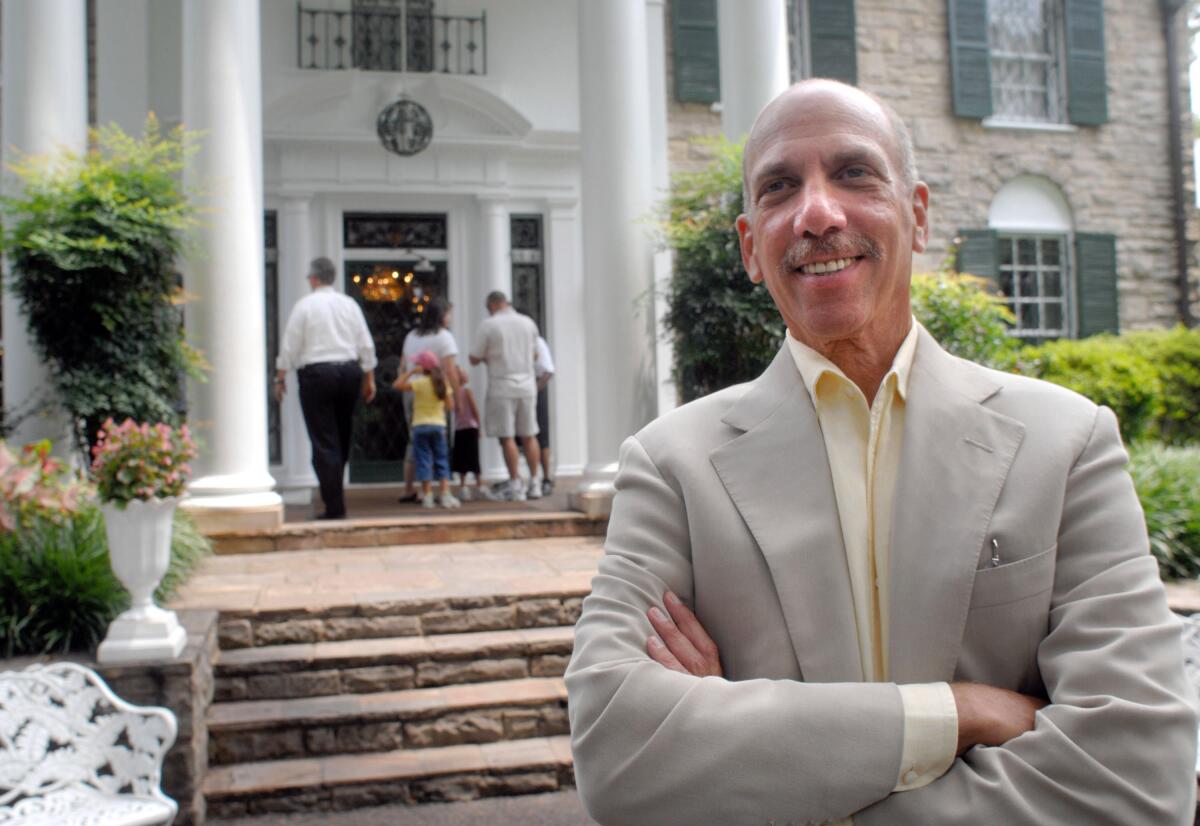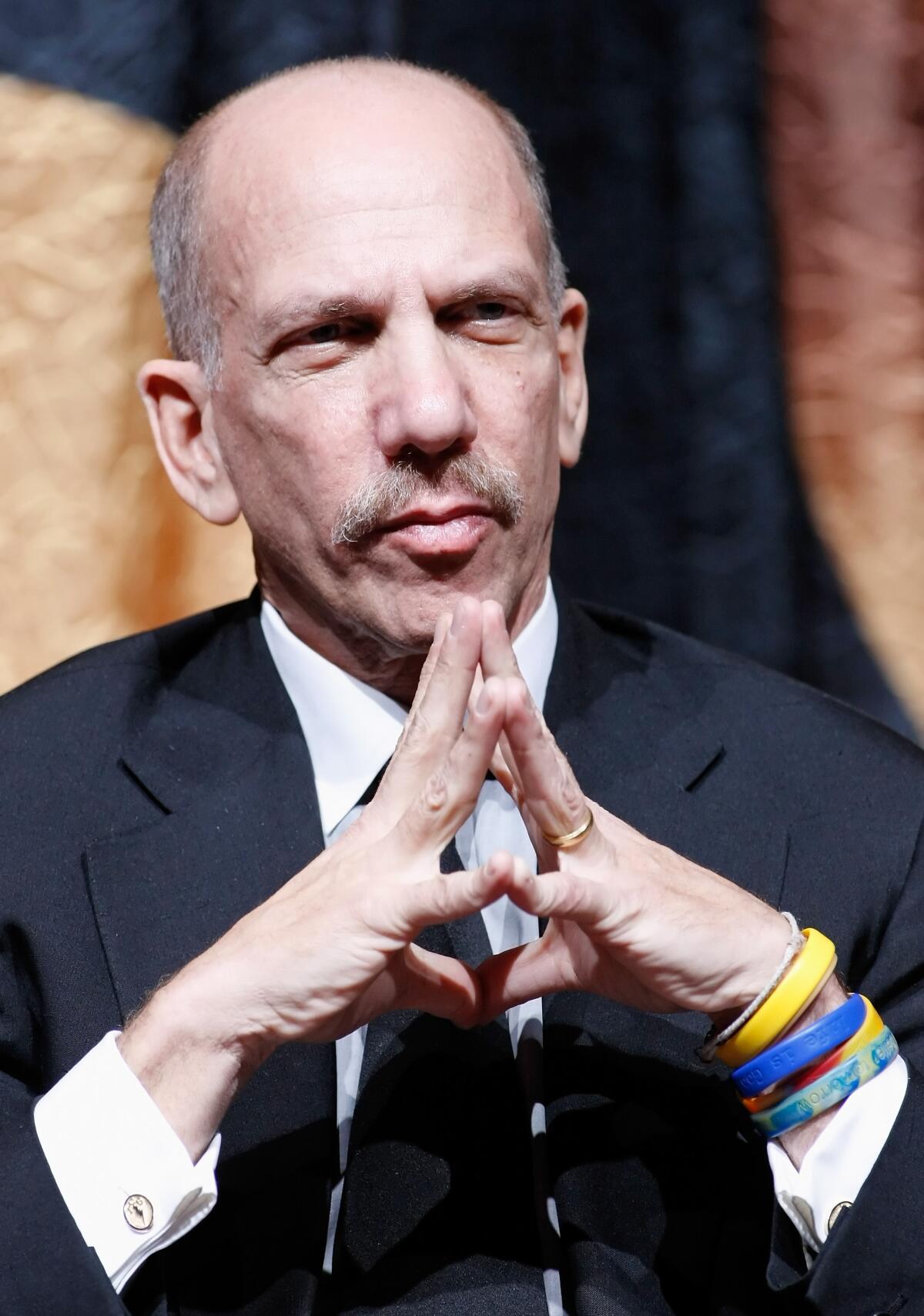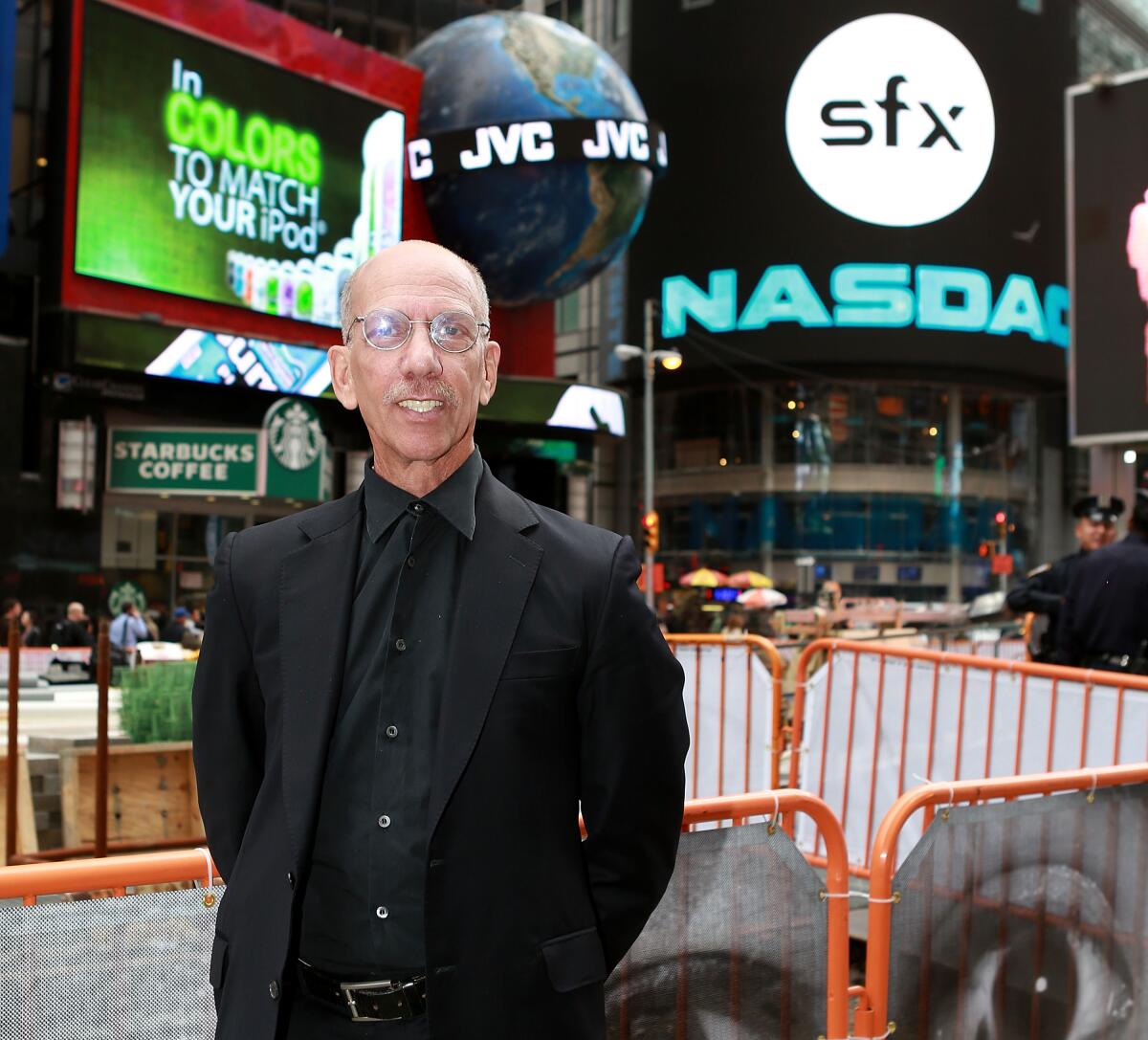Robert F.X. Sillerman, who founded SFX Entertainment, dies at 71

- Share via
Robert F.X. Sillerman, the New York entertainment businessman who consolidated a series of companies and helped form the modern concert industry, died Sunday of a respiratory illness, Billboard reported. He was 71.
Founder of SFX Entertainment, Sillerman carved his way into the music industry by purchasing and consolidating multiple promoters in the 1990s, including Bill Graham Presents based in San Francisco; Cellar Door Concerts from Florida; and Houston’s Pace Concerts.
He merged the individual entities into SFX Entertainment and later sold the business for $3 billion to Clear Channel Communications in 2000. That eventually became the empire that is now Live Nation, which merged with Ticketmaster in 2010.

A Bronx native, Sillerman was born into a family whose father, Michael McKinley Sillerman, built the Keystone Radio Network.
As an undergraduate in the 1960s at Brandeis University, he launched his first business, Youth Market Consultants Inc., offering students marked-down magazine subscriptions and helping advertising companies attract young audiences.
He started buying radio stations in the late 1970s with DJ Bruce Morrow, and over the next decade amassed TV and radio stations across the country. The company sold eight of the stations to Westinghouse Broadcasting in 1989 for more than $350 million, a record transaction at the time.
In the early 1990s, Sillerman and partner Steven Hicks created SFX Broadcasting in reaction to the deregulation of the radio industry. When the Telecommunications Act of 1996 was enacted, Sillerman bought and consolidated dozens of radio stations before selling 71 of them in the late 1990s for $2.1 billion.
This left room for Sillerman to focus on live entertainment.
In a 2000 interview with CNBC, Sillerman talked about why he created SFX.

“Live entertainment is a way to do things in a communal environment that validates your taste,” he said, “and we are seeing that those things that are in fact not time adjustable, not using a VCR or anything like that, are being incrementally rewarded.”
After selling SFX Entertainment, Sillerman founded CKX Inc., with the intention of creating a diverse entertainment company. As its chief executive, he purchased stakes in the estates of Elvis Presley and Muhammad Ali; Simon Fuller’s 19 Entertainment, which owns the rights to “American Idol”; and the management company for Woody Allen and Billy Crystal.
He left CKX in 2010 before selling it the following year.
He relaunched SFX in 2012, this time focusing on the burgeoning electronic dance music scene, a genre he once admitted he knew nothing about. As he had done countless times before, Sillerman acquired and consolidated a series of smaller promoters.

“There was an opportunity to combine all of these great companies around the world and capitalize on what that would mean for fans — we would do more concerts and they would get better,” Sillerman told the New York Business Journal in 2015.
But in 2016, SFX declared bankruptcy after stocks plunged. Sillerman abandoned a takeover bid and was slapped with several lawsuits. He soon stepped down as chief executive.
This year, Sillerman paid $179,000 to the U.S. Securities and Exchange Commission to settle charges in a security frauds case.
The business mogul also drew attention for his unconventional behavior as leader of a public company. In 2014, Sillerman used profane language during an earnings conference call after photos surfaced online showing him giving photographers the middle finger while exiting a plane.
Despite his controversies, Sillerman was also a philanthropist. He launched the Tomorrow Foundation with his wife, Laura Baudo, to support educational and environmental programs for the underprivileged. He also established the Sillerman Center for the Advancement of Philanthropy at his university alma mater.
“I’ve been very blessed in business, and the only reason economically to do this is the joy of doing what we do,” Sillerman told Billboard in 2013.
He is survived by his wife, according to Variety.
More to Read
The biggest entertainment stories
Get our big stories about Hollywood, film, television, music, arts, culture and more right in your inbox as soon as they publish.
You may occasionally receive promotional content from the Los Angeles Times.











